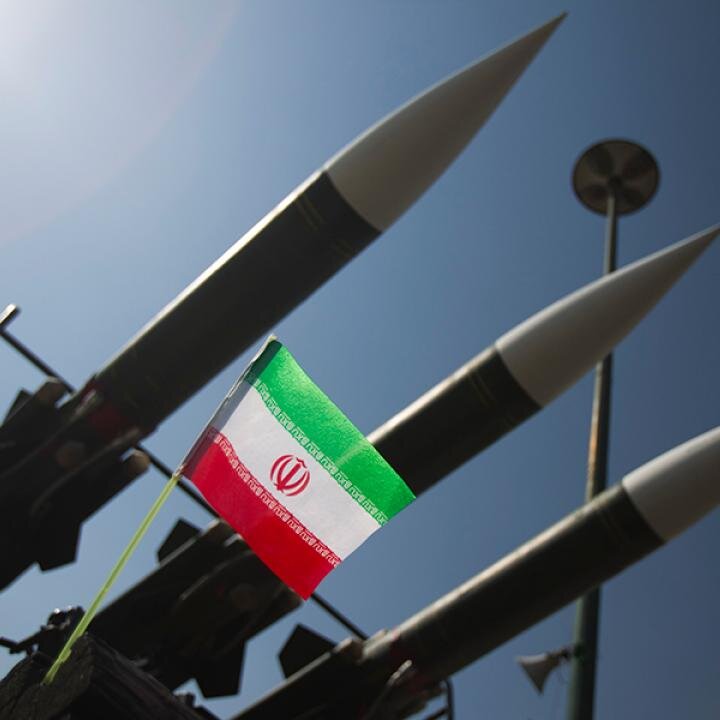Assessing Iran’s options following Israeli strikes

MADRID – Leader of the Islamic Revolution, Ayatollah Seyyed Ali Khamenei, called for the formation of a "global coalition" against Israel during a meeting with the families of military martyrs. In his speech, he condemned the "ongoing actions of the Zionist regime in Gaza and Lebanon," accusing it of committing war crimes.
Ayatollah Khamenei firmly condemned the "atrocities of the Zionist regime in Gaza," accusing it of committing "some of the most serious war crimes by killing more than ten thousand children." He also criticized the "alarming inaction of governments and international organizations, such as the UN, in response to these aggressions in Gaza and Lebanon." The Leader emphasized that "in any war, there are rules and limits; not everything can be justified. However, the criminal band controlling the occupied territories has ignored all international norms and laws."
Regarding the attack on Iran on October 26, Ayatollah Khamenei warned that "the Zionists are exaggerating what they did for specific purposes, but downplaying it and claiming it was unimportant would also be a mistake."
Finally, the Leader demanded that governments, especially Islamic countries, "firmly oppose the criminal Zionist regime and build a global coalition to confront it." He stressed that this is not just about cutting economic aid, as "assisting the usurping regime is one of the most serious and deplorable sins." He also stated that opposition "involves creating a global coalition in political and economic fields, and even, if necessary, militarily."
In this context, the spokesperson for the Ministry of Foreign Affairs, Ismail Baghaei, stated during his weekly briefing with journalists that Iran will not renounce its right to respond to Israeli attacks. "Tehran will use all the tools at its disposal to provide a strong response," Baghaei added.
The spokesperson also emphasized that it was the Israelis who initiated the aggression and, therefore, they are the ones who must put an end to it. "On various occasions, we have acted with restraint in favor of peace and stability in the region, but unfortunately, our moderation has been misinterpreted in earlier stages," he highlighted.
Regarding the possible Iranian responses to the Israeli attack, several alternatives are being considered. Some sources suggest that Iran may not respond immediately. Given that the attacks were concentrated in Tehran and its surroundings, it is likely that Iran will be forced to act. However, with only ten days until the U.S. elections, some analysts warn that an immediate response could benefit Trump. This containment strategy might focus on Lebanon while Iran continues to assess its options. Furthermore, it has been suggested that Iran could avoid a strong military response if the genocide in Gaza and the destruction in Lebanon can be halted.
On the other hand, some analysts believe it is time to respond decisively to Israeli aggressions. In this regard, international relations expert Foad Izadi asserts that a third Iranian attack against Israel is very likely, as "the idea of attacking Iran should not be normalized." According to Izadi, military passivity only emboldens Israel.
Both perspectives agree that a military response to Israeli aggression is inevitable, although they differ in their calculations for its implementation. On one hand, some believe that the response, if the killings in Gaza and Lebanon do not cease, should wait until after the U.S. elections to avoid benefiting Trump. On the other hand, a strong military response is suggested, raising the possibility of carrying out Operation True Promise 3.
What seems undeniable is that the attacks have had a very limited impact, and in terms of deterrence, they have not succeeded in restoring Israel's threat capacity. In this sense, a senior U.S. official stated to the Washington Post that the Israeli attack early Saturday against military targets in Iran was a "very moderate attack."
Lastly, it is important to highlight that Iran continues to advance on the diplomatic front. The tours by Foreign Minister Abbas Araghchi to regional capitals are significant, as he is not only visiting countries historically close to Iran or where it has interests, such as Lebanon or Iraq, but also establishing contacts with nations that maintain relations with Israel and are close to the West, such as Jordan and Egypt.
This demonstrates how Iran is gaining influence in Jordan and Egypt. Both countries are on a path toward diplomatic reconciliation. Moreover, Iran and Saudi Arabia have improved their relations with the support of China. All of this indicates that, in addition to weakness in terms of deterrence, Israel is losing the diplomatic battle against the Islamic Republic.
Leave a Comment